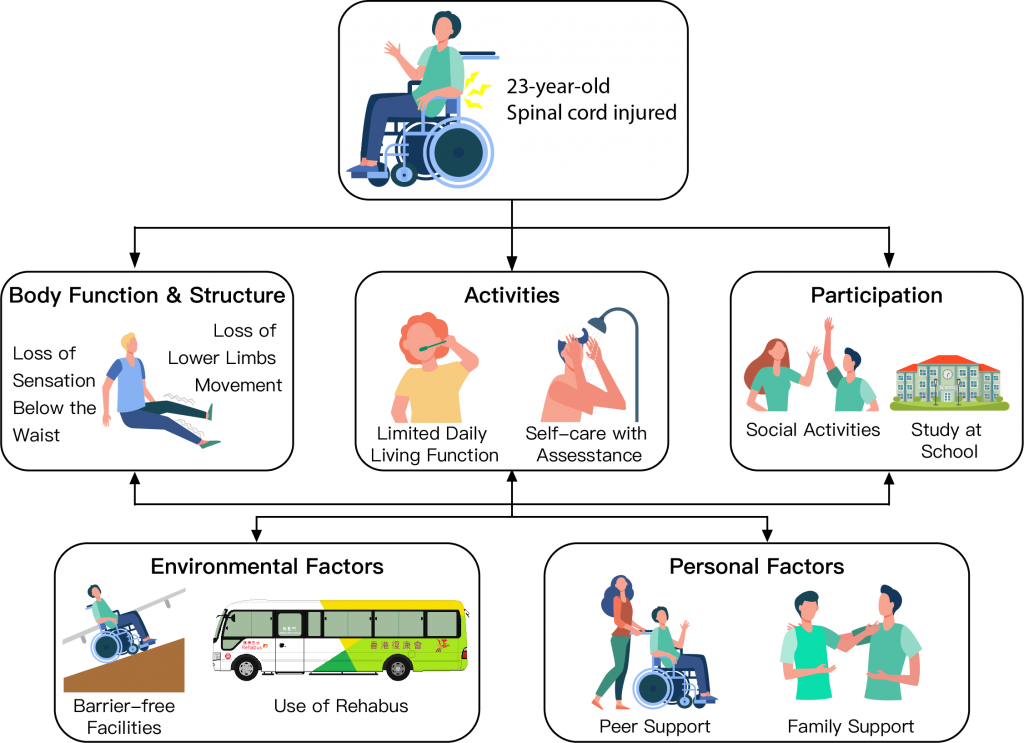The ICF system provides a comprehensive and unified framework to analyse and to understand the living conditions of people with different types and levels of disabilities in multi-category approach such as body function and structure, activities, participation, environmental factors and personal factors. The following figure illustrates how the ICF system could formulate different facets of an adult with spinal cord injury.
The ICF system could help better understand and analyze the health and the participation of individuals in multi-category. In the above example, the person with spinal cord injury would lose sensory and mobility functions. He may need assistance in daily living activities. On the other hand, he could participate in social activities and go to school for study with the use of a wheelchair for transportation, peer support, and the provision of rehabus and other barrier-free facilities This would enable the fulfilment of personal needs and social expectations. This study aims to adopt the ICF system and other factors to establish a rehabus service system with taking the needs of users and the expectations of the public into account. The research team anticipates that the opinions from policy personnel, rehabilitation service providers and service users on the newly established system could improve the representativeness and acceptance of the service system.
